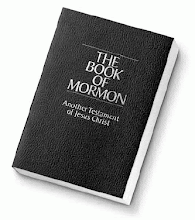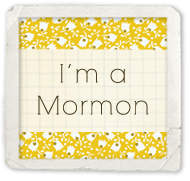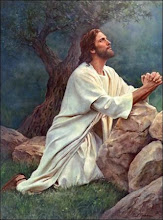Last week, the popular Evangelical pastor Robert Jeffress made the comment in an interview that Mitt Romney, as a member of the Church of Jesus Christ of Latter-Day Saints, was a “non-Christian” in a “cult”. The LDS Church made a simple statement in response to his comment.
“We really don’t want to comment on a statement made at a political event, but those who want to understand the centrality of Christ to our faith can learn more about us and what we believe by going to mormon.org.”
It’s as simple as that. If you want to know what Mormons believe, go to the source. Don’t rely on an Evangelical pastor or any other person who is not a devout member of the LDS faith to tell you who Mormons are and what we believe. Evangelicals are no experts on the Mormon faith. Would I turn to a Mormon to find out what the Baptists believe? No. I would go to a devout member of the Baptist faith to find out what the Baptists believe. If you truly care about getting to the truth, go to the proper source.
So then, what about this accusation that Mormons aren’t Christian? As a member of the Church of Jesus Christ of Latter Day Saints, I am here to tell you that absolutely YES! We ARE Christians. We believe in the Bible and believe in the Jesus of the New Testament who was born of the virgin Mary. We believe that Jesus Christ is the Son of God and the Savior of the world who suffered and atoned for our sins, died for us on the cross and was resurrected 3 days later. Christ is the cornerstone of our religion. How could we not be Christians when “we talk of Christ, we rejoice in Christ, we prophesy of Christ…” (2 Nephi 25:26)
I have watched several interviews where Jeffress expounded on the comments that he made about Mormonism being a cult and a non Christian religion. It bothers me that he uses the word “cult” because naturally the word “cult” has a negative connotation associated with it. He did at least clarify that he was not referring to a “sociological cult” (ex: David Koresh and his followers) but rather a “theological cult”. Basically what it boils down to is that there are theological differences between our religion and his. Ya, so what?? Aren't there theological differences between all religions? Is this reason to label Mormons a cult and a non-Christian religion? I find it interesting that Jeffress (and others as well) see fit to create their own definition of what a Christian is. I don’t quite understand his philosphy that Christians are “only those who believe as I do”.
I do have to say that it is true that we are not “Creedal Christians”. Mormons do not embrace the creeds which were formulated by men centuries after the books in the bible had been written. The lds newsroom blog explains it perfectly. “When Mormons say they are Christian, they are not suggesting that their beliefs line up perfectly with evangelicals or Catholics or other Christians. Using the term "Christian" is not an attempt to gain acceptance into the mainstream -- something that has little appeal or relevance to Latter-day Saints. Mormons are not interested in parsing semantics or embracing the Nicene Creed or any other post-New Testament creed in order to be accepted by the world of Christian orthodoxy…What Mormons mean when they say they are Christian is that they follow Jesus Christ. Their religion teaches them not only that they should embrace the teachings of Jesus but also that they should try to model their lives on the pattern He set. All Christians can acknowledge that the Lord offered two commandments as primary -- to love God and to love our neighbors. Doing so makes us followers of Christ, theological interpretations of doctrines notwithstanding.”
I've never understood how pastors of other religions can preach Christianity but then turn around and bash other churches. It seems a bit hypocritical to me. I truly wish that people of all Christian religions would focus on the common ground that we all share (Mormons share more common ground with other Christian religions than most people realize), and then be Christian enough to respect the differences amongst us. As fellow followers of Jesus Christ, let us work together to lift people up and do good in the world.
Christian-“one who believes or professes…to believe in Jesus Christ and the truth taught by him…one whose life is conformed to the doctrines of Christ”
I am a member of the Church of Jesus Christ of Latter Day Saints. I am a Christian.
For more information about our beliefs in Jesus Christ visit
http://mormon.org/faq/belief-in-jesus-christ/





